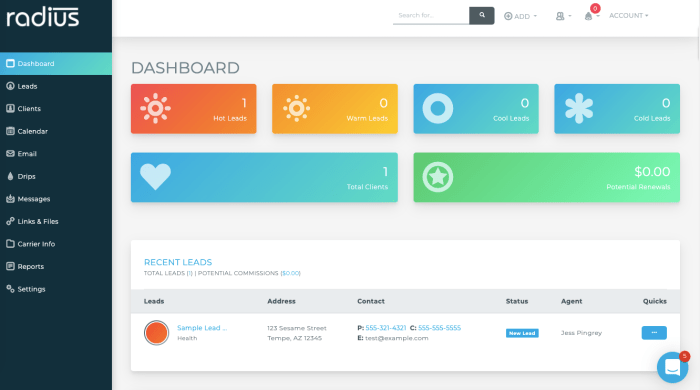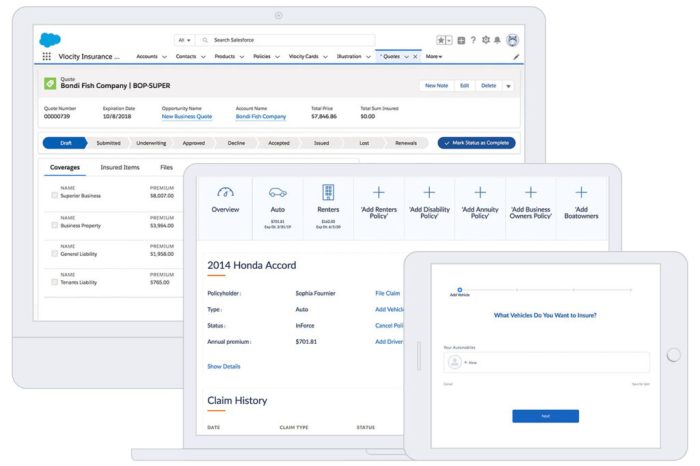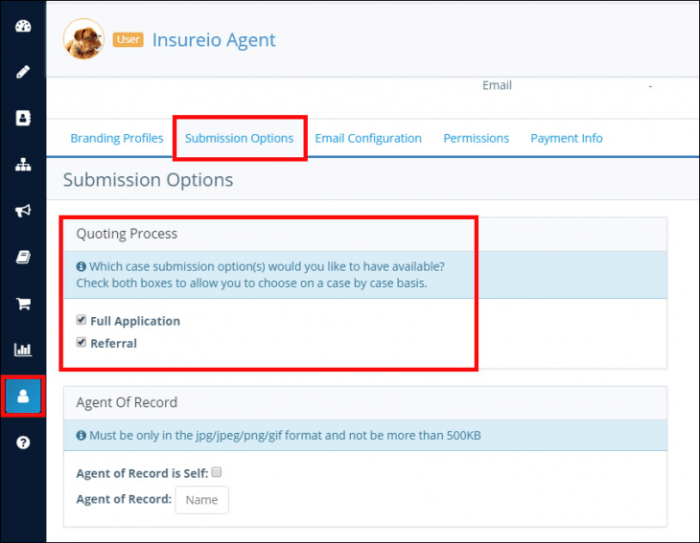Finding the right Customer Relationship Management (CRM) software is crucial for insurance agencies of all sizes. A robust CRM system streamlines operations, improves client relationships, and ultimately boosts profitability. This comprehensive guide explores the best insurance CRM software options available, considering factors like features, pricing, scalability, and integration capabilities. We’ll delve into the nuances of each platform, helping you make an informed decision for your agency’s specific needs.
Key Features to Look for in Insurance CRM Software
Before diving into specific software options, let’s Artikel the essential features you should prioritize. The ideal insurance CRM should offer a blend of functionality to manage your entire sales cycle, from lead generation to policy renewal.
Essential Features:, Best insurance crm software
- Contact Management: Centralized database for storing client information (personal details, policy information, communication history, etc.). Robust search and filtering capabilities are essential for quick access.
- Lead Management: Tools to capture, nurture, and track leads throughout the sales pipeline. Automated workflows and lead scoring are valuable additions.
- Policy Management: Efficiently manage policy details, renewal dates, and associated documents. Integration with your agency’s policy administration system is vital.
- Communication Management: Seamless integration with email, phone, and text messaging to facilitate effective communication with clients and prospects. Automated email campaigns are a significant advantage.
- Reporting and Analytics: Comprehensive dashboards and reports to track key metrics like sales conversion rates, client retention, and agent productivity. Data-driven insights are critical for strategic decision-making.
- Integration Capabilities: Seamless integration with other essential business tools, including accounting software, email marketing platforms, and appointment scheduling tools.
- Mobile Accessibility: Access to the CRM system from any device (smartphone, tablet, laptop) for increased flexibility and responsiveness.
- Workflow Automation: Automate repetitive tasks like sending renewal reminders, follow-up emails, and generating reports, freeing up valuable time for your agents.
- Customer Support: Reliable customer support with readily available documentation, tutorials, and responsive technical assistance.
Top Insurance CRM Software Options
The market offers a variety of insurance CRM solutions. Choosing the right one depends on your agency’s size, budget, and specific requirements. Below, we explore some of the leading options:
1. Salesforce Sales Cloud
Salesforce is a market leader, offering a highly customizable and scalable CRM platform. Its robust features, including lead management, contact management, and sales forecasting, make it suitable for large insurance agencies. However, it can be expensive and requires significant technical expertise for optimal configuration. Salesforce Insurance Solutions
2. HubSpot CRM
HubSpot offers a user-friendly and comprehensive CRM platform, particularly well-suited for smaller to medium-sized insurance agencies. Its free version offers basic features, while paid plans unlock advanced functionalities like marketing automation and sales analytics. HubSpot CRM
3. Zoho CRM
Zoho CRM is a cost-effective option with a wide range of features, including contact management, lead management, and sales automation. Its intuitive interface and affordable pricing make it a popular choice for agencies on a budget. Zoho CRM
4. Insly
Insly is specifically designed for the insurance industry, offering features tailored to the unique needs of insurance brokers and agents. It boasts strong policy management capabilities and integrations with other insurance-related systems. Insly
5. Applied Epic
Applied Epic is a comprehensive system for larger insurance agencies, offering a wide array of functionalities, including policy administration, billing, and claims management. It’s a powerful solution but comes with a higher price tag and requires specialized training. Applied Epic
Choosing the Right Insurance CRM: Factors to Consider
Selecting the optimal CRM requires careful consideration of several factors:

Source: fitsmallbusiness.com
- Agency Size and Budget: Smaller agencies may benefit from a simpler, more affordable CRM, while larger agencies might require a more scalable and feature-rich solution.
- Specific Needs: Consider your agency’s unique requirements, such as policy management, lead generation, and reporting needs. Prioritize features that directly address these needs.
- Integration Capabilities: Ensure the CRM integrates seamlessly with your existing systems, such as accounting software and email marketing platforms.
- User-Friendliness: Choose a CRM with an intuitive interface that is easy for your agents to learn and use effectively.
- Scalability: Select a CRM that can grow with your agency, accommodating increased data volume and user numbers as your business expands.
- Customer Support: Reliable customer support is crucial, especially during implementation and ongoing use. Look for a vendor with responsive and knowledgeable support staff.
Frequently Asked Questions (FAQ)
- Q: What is the cost of insurance CRM software? A: Pricing varies significantly depending on the software, features, and number of users. Some offer free plans with limited functionality, while others charge monthly or annual subscriptions, ranging from a few hundred to thousands of dollars.
- Q: How long does it take to implement an insurance CRM? A: Implementation time depends on the complexity of the software and the size of your agency. It can range from a few weeks to several months.
- Q: Can I integrate my existing systems with a new CRM? A: Most modern CRMs offer robust integration capabilities with various systems, including accounting software, email marketing platforms, and appointment scheduling tools. However, it’s crucial to check compatibility before making a decision.
- Q: What are the benefits of using an insurance CRM? A: Benefits include improved client relationships, streamlined operations, increased sales efficiency, better data management, and enhanced reporting and analytics.
- Q: Is cloud-based insurance CRM better than on-premise? A: Cloud-based CRMs offer greater accessibility, scalability, and cost-effectiveness. However, on-premise solutions might be preferred by agencies with stringent data security requirements.
Conclusion
Selecting the best insurance CRM software is a crucial decision that impacts your agency’s efficiency and profitability. By carefully considering your specific needs, budget, and the features discussed above, you can choose a solution that optimizes your operations and strengthens your client relationships. Don’t hesitate to leverage free trials and demos to test different platforms before making a final commitment.
Call to Action
Ready to transform your insurance agency’s operations? Explore the options discussed above and choose the CRM that best aligns with your goals. Start your free trial today and experience the power of a streamlined workflow!
Q&A: Best Insurance Crm Software
What are the key features to look for in insurance CRM software?
Essential features include contact management, policy management, communication tracking, reporting and analytics, lead management, and integration with other business tools.
How much does insurance CRM software typically cost?

Source: fitsmallbusiness.com
Pricing varies greatly depending on the features, number of users, and vendor. Expect to find options ranging from affordable monthly subscriptions to more comprehensive, enterprise-level solutions with higher price tags.
Can insurance CRM software integrate with my existing systems?
Many CRM platforms offer robust integration capabilities with various systems, including accounting software, email marketing platforms, and phone systems. However, it’s crucial to verify compatibility before making a purchase.
What is the typical implementation timeline for insurance CRM software?

Source: fitsmallbusiness.com
Implementation time varies, but expect a process that includes setup, data migration, training, and testing. This could range from a few weeks to several months depending on the complexity of the system and your agency’s needs.
